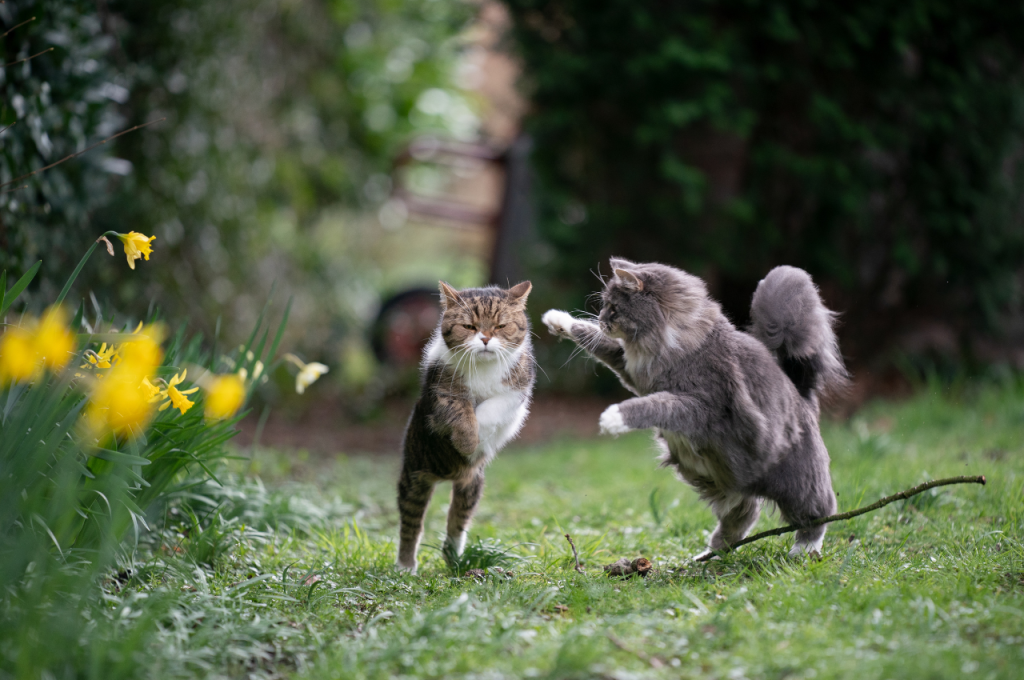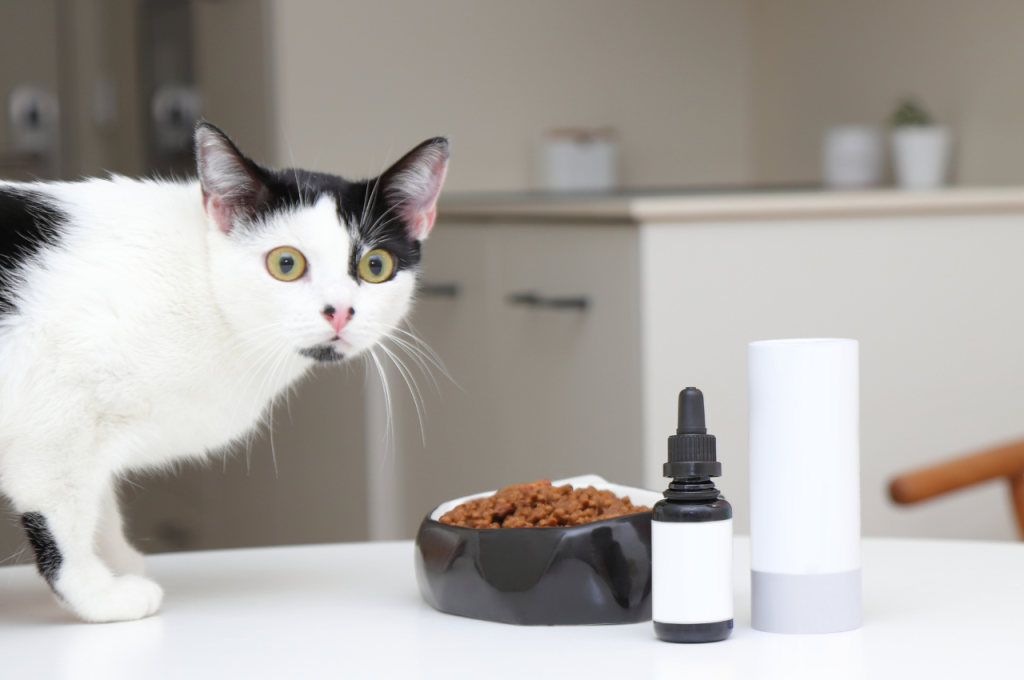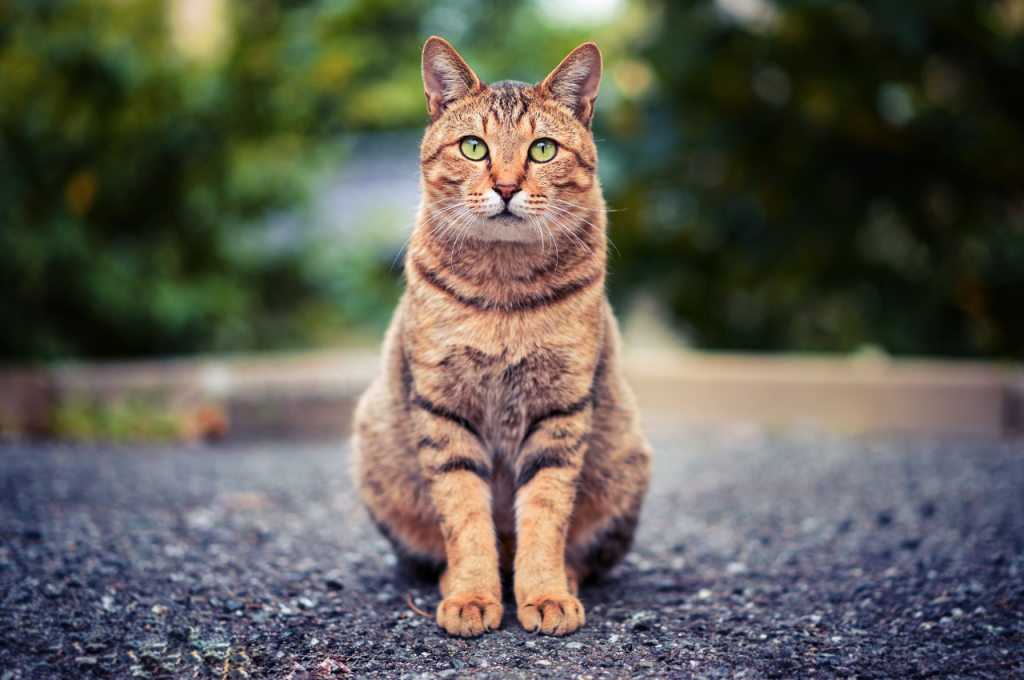To improve a cat’s fur, brush regularly and provide a balanced diet rich in nutrients. Incorporate grooming and a healthy diet for optimal fur health.
A shiny and soft coat not only enhances your cat’s appearance but also indicates overall good health. Proper grooming removes loose fur, dirt, and debris, preventing matting and promoting circulation. Additionally, a diet with high-quality protein and essential fatty acids supports a healthy coat from within. By focusing on these aspects, you can help your cat maintain a luxurious and healthy fur coat.
Introduction To Feline Coat Care
The Importance Of A Healthy Coat
A cat’s fur plays a crucial role in its overall health and well-being. Regular grooming and proper care of their coat can help maintain optimal skin health and prevent skin issues. A healthy coat is also a sign of a well-nourished and happy feline.

Signs Of An Unhealthy Coat
Identifying signs of an unhealthy coat is vital for early intervention. Common indicators include excessive shedding, dull or greasy fur, flaky skin, and bald patches. These signs may indicate underlying health problems or poor grooming habits that need to be addressed promptly.
Nutrition For A Glossy Coat
Enhance your cat’s fur with proper nutrition for a glossy coat. Provide a balanced diet rich in omega-3 fatty acids to promote healthy skin and shiny, lustrous fur. Ensure your feline friend’s diet includes essential nutrients for a vibrant and luxurious coat.
Essential Nutrients For Fur Health
To maintain a glossy and healthy coat, it’s crucial to provide your cat with the essential nutrients they need. These nutrients play a vital role in promoting fur health and enhancing its appearance. Here are some key nutrients that should be included in your cat’s diet:
- Protein: Amino acids found in protein are the building blocks of a cat’s fur. Including high-quality protein sources such as chicken, fish, and eggs in their diet can help promote healthy hair growth.
- Omega-3 Fatty Acids: These essential fatty acids are known for their anti-inflammatory properties and can contribute to a soft and shiny coat. Fish oil or supplements containing omega-3 fatty acids can be beneficial for your cat’s fur health.
- Biotin: Biotin is a B vitamin that plays a significant role in maintaining healthy skin and fur. Foods rich in biotin, like eggs and liver, can help improve the condition of your cat’s coat.
- Vitamins A and E: Both vitamins are essential for overall skin and coat health. Vitamin A promotes the production of natural oils that keep the fur moisturized, while vitamin E acts as an antioxidant, protecting the skin and fur from damage.
Best Foods For Coat Enhancement
Choosing the right food for your cat is essential to ensure they receive the necessary nutrients for a glossy coat. Here are some top food choices that can help enhance your cat’s fur:
- High-quality Cat Food: Opt for a premium cat food brand that includes a balanced combination of protein, healthy fats, and essential vitamins and minerals. Look for options that specifically mention fur health or coat enhancement.
- Wet Food: Wet cat food is generally higher in moisture content, which helps keep your cat hydrated. Hydration is crucial for maintaining healthy skin and fur. Additionally, many wet cat foods contain added nutrients for coat health.
- Fish-based Diet: Fish, such as salmon or tuna, is a great source of omega-3 fatty acids, which can promote a shiny coat. Introducing fish into your cat’s diet, either through wet food or as a treat, can be beneficial.
- Supplements: If your cat’s diet is lacking in certain essential nutrients, consider adding supplements specifically formulated for coat health. However, it’s important to consult your veterinarian before introducing any new supplements to your cat’s diet.
Providing your cat with a well-balanced diet rich in essential nutrients is key to improving their fur’s appearance. Remember to consult your veterinarian for personalized advice based on your cat’s specific needs and to ensure they receive the best possible care.
Regular Grooming Techniques
Regular grooming is essential for maintaining the health and appearance of your cat’s fur. By incorporating proper grooming techniques into your routine, you can help improve the condition of your feline friend’s coat. Below, we’ll explore the key aspects of regular grooming, focusing on choosing the right grooming tools and brushing routines for different fur types.
Choosing The Right Grooming Tools
When it comes to grooming your cat’s fur, selecting the right tools is crucial for achieving optimal results. Different types of fur require specific grooming instruments to effectively remove tangles and loose hair. For short-haired cats, a fine-toothed comb or a soft-bristle brush can help maintain their coat’s sleek appearance. Long-haired cats, on the other hand, may benefit from a wide-toothed comb and a slicker brush to prevent matting and reduce shedding.
Brushing Routines For Different Fur Types
Brushing your cat’s fur regularly is a vital part of maintaining its overall health and appearance. Developing a brushing routine that caters to your cat’s specific fur type is essential. For short-haired cats, aim to brush them at least once a week using a soft-bristle brush to remove loose hair and distribute natural oils evenly. Long-haired cats, however, may require more frequent brushing, around two to three times a week, using a wide-toothed comb to prevent knots and tangles from forming.
Hydration And Its Impact
The impact of hydration on a cat’s fur cannot be overstated. Ensuring your feline friend is properly hydrated is vital for maintaining a healthy and lustrous coat. Let’s delve into the role of water in coat health and discover some practical tips to encourage increased water intake.
Water’s Role In Coat Health
Hydration plays a pivotal role in the overall health and appearance of a cat’s fur. Adequate water intake supports the body’s natural processes, helping to nourish the skin and coat from within. When a cat is well-hydrated, it promotes the production of natural oils that contribute to soft, shiny, and well-conditioned fur.
Tips To Encourage More Water Intake
- Provide a clean and accessible water source at all times.
- Consider using a pet fountain to attract your cat’s interest in drinking water.
- Offer wet food or add water to dry food to increase overall water consumption.
- Experiment with different types of bowls, such as ceramic or stainless steel, to find what your cat prefers.
- Place water bowls away from the litter box and food dishes to prevent contamination.
- Regularly clean and refill water bowls to ensure freshness.
Supplements For Coat Improvement
Improve your cat’s fur with supplements that promote healthy skin and coat. Omega-3 fatty acids, biotin, and vitamin E are just a few examples of supplements that can enhance the appearance and texture of your feline friend’s coat.

Cats are known for their soft and shiny fur, but sometimes they may experience dullness, dryness, or shedding. One of the most effective ways to improve a cat’s fur is by providing them with supplements that promote coat health. However, it is important to note that not all supplements are created equal, and some may not be suitable for all cats. In this article, we will discuss some of the most popular supplements for cats and important considerations for their safety and dosage.
Popular Supplements For Cats
There are various supplements available in the market that claim to improve a cat’s coat health. Some of the most popular supplements for cats include:
- Fish oil: Rich in omega-3 fatty acids, fish oil is known to promote healthy skin and coat, reduce shedding, and alleviate inflammation. It is available in liquid or capsule form and can be added to a cat’s food.
- Biotin: A B vitamin, biotin is essential for healthy skin and coat. It can help reduce shedding and improve the thickness and shine of a cat’s fur. Biotin supplements are available in tablet or liquid form.
- Probiotics: Probiotics are beneficial bacteria that promote digestive health. A healthy gut can contribute to a healthy coat. Probiotic supplements are available in powder or capsule form and can be added to a cat’s food.
- Coconut oil: Coconut oil is rich in medium-chain fatty acids that can improve a cat’s coat health. It can be applied topically or added to a cat’s food.
Safety And Dosage Considerations
While supplements can offer numerous benefits for a cat’s coat health, it is important to ensure their safety and proper dosage. Some important considerations include:
- Consultation with a veterinarian: Before adding any supplement to a cat’s diet, it is essential to consult with a veterinarian. They can recommend the appropriate supplement and dosage based on a cat’s age, weight, and health status.
- Quality of the supplement: It is important to choose high-quality supplements that are free from harmful additives or contaminants. Look for supplements that are certified by reputable organizations.
- Proper dosage: Overdosing supplements can be harmful to a cat’s health. Always follow the recommended dosage on the supplement label or as advised by a veterinarian.
- Monitoring for adverse effects: Keep an eye on a cat’s behavior and overall health when introducing a new supplement. If any adverse effects such as vomiting or diarrhea occur, stop the supplement and consult with a veterinarian.
In conclusion, supplements can be an effective way to improve a cat’s coat health. Popular supplements such as fish oil, biotin, probiotics, and coconut oil can offer numerous benefits. However, it is important to ensure their safety and proper dosage to avoid any adverse effects. Consultation with a veterinarian, choosing high-quality supplements, proper dosage, and monitoring for adverse effects are some important considerations.
Preventing And Treating Common Coat Problems
To improve your cat’s fur, regular grooming, and a balanced diet are essential. Brushing your cat’s coat helps distribute natural oils and prevents matting. A high-quality diet rich in essential nutrients promotes a healthy and shiny coat. Regular vet check-ups can address any underlying health issues that may affect your cat’s fur.
Solutions For Dryness And Dandruff
Preventing and Treating Common Coat Problems Cats can develop coat issues like mats, tangles, dryness, and dandruff. Regular grooming can help prevent these problems. Brush your cat weekly to remove loose fur and prevent mats. Use a specially formulated cat brush to detangle knots gently. For mats and tangles, use a comb to separate them. Avoid cutting them with scissors as it can harm your cat. Consult a vet if the mats are severe. For dryness and dandruff, ensure your cat is well-hydrated. Provide a balanced diet to improve skin health.
Regular grooming can prevent mats and tangles. Use a cat brush and comb to detangle gently. Avoid cutting mats with scissors. Consult a vet for severe cases. To combat dryness, ensure your cat is well-hydrated. Feed a balanced diet for skin health.
The Role Of Regular Veterinary Care
Regular veterinary care plays a crucial role in maintaining the health and appearance of your cat’s fur. Vets are trained to identify and address underlying health issues that may affect your cat’s coat, ensuring it remains healthy and lustrous.
How Vets Can Help Maintain Coat Health
Veterinarians can provide expert advice on proper nutrition and grooming techniques, tailored to your cat’s specific needs.
- Recommend high-quality diets rich in essential nutrients
- Suggest supplements to promote coat health
- Identify and treat skin conditions that may affect the fur
When To Seek Professional Advice
If you notice significant changes in your cat’s coat, such as excessive shedding or dullness, it’s essential to consult a vet promptly.
- Any sudden bald patches or redness on the skin
- Persistent itching or discomfort
- Abrupt changes in grooming habits
Lifestyle Adjustments For Optimal Fur
Cats are known for their luxurious fur, but achieving optimal coat conditions requires more than just regular grooming. Making simple lifestyle adjustments can significantly improve your cat’s fur health and appearance.

The Impact Of Stress On Coat Condition
Stress can lead to dull and unhealthy fur in cats. Provide a stress-free environment to maintain a shiny coat.
Exercise And Play For Coat Vitality
Regular exercise and playtime are essential for promoting healthy skin and a lustrous coat.
Conclusion
Improving your cat’s fur requires a combination of proper nutrition, regular grooming, and attention to their overall health. By providing a balanced diet, brushing regularly, and addressing any underlying health issues, you can help your feline companion maintain a healthy and shiny coat.
Remember to consult with your veterinarian for personalized advice and to monitor any changes in your cat’s fur. With a little effort and care, your cat’s fur can be a source of pride and beauty.
